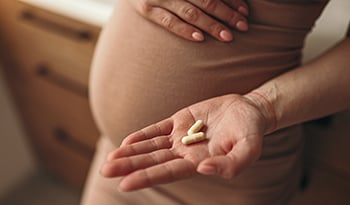Personal Care for Women: Why Organic Matters

What Are Women’s Personal Care Products?
Personal care products for women include tampons, menstrual pads, wipes, sprays, washes, powders, and lotions.
The Problem
Just as more consumers are concerned with chemical additives in food, cosmetics, skincare, laundry detergents, and fabric softeners, there is a growing popularity of organic or chemical-free personal care products.
A woman may use over 10,000 tampons, menstrual pads, or other personal care products throughout their life. Also, there are no governmental regulations concerning toxic chemicals in women’s personal care products. As a result, these products can be a significant source of exposure, carrying with them a significant health risk.[1,2]
Toxic Chemicals: What To Look Out For
A list of potentially harmful chemicals is typically found in female care products.[1,2]
Some chemicals that disrupt the female hormonal system or are chronic disease-causing toxins include:
- Pesticides
- Phthalates
- Parabens
- Synthetic Fragrances
- Heavy metals (lead, cadmium, and mercury)
Why Choose Organic Personal Care Products?
Since vaginal and vulvar tissue is highly absorptive, i.e., much more absorptive than the skin, the presence of hormone-disrupting and other toxic chemicals in personal care products is a serious problem.[3] Tampon use, in particular, is associated with increased oxidative stress, presumably due to increased exposure to environmental contaminants in these products. Choosing products that are lower in toxic chemicals is highly recommended.
What To Look For
To reduce exposure to toxic chemicals like phthalates, parabens, fragrances, and other ingredients present in home and beauty products, it is important for women to carefully examine their choices in feminine hygiene products.
Look for brands and products that disclose all ingredients on the label and avoid those with added chemicals or fragrances. And since many women’s personal care products are made from cotton, which can be exposed to pesticides or other additives in the growing and harvesting process, it is essential to look for organic certifications on cotton-based tampons or pads.
To be certified as organic by the United States Department of Agriculture (USDA) products must be grown without synthetic pesticides or fertilizers.
Summary
Women's personal care products, like tampons and pads, can pose health risks due to toxic chemicals. Choosing organic options can reduce exposure to harmful substances. Look for products with transparent ingredient lists and organic certifications to prioritize health and well-being.
References:
- Upson K, Shearston JA, Kioumourtzoglou MA. Menstrual products as a source of environmental chemical exposure: a review from the epidemiologic perspective. Curr Environ Health Rep. 2022;9(1):38-52.
- Marroquin J, Kiomourtzoglou MA, Scranton A, Pollack AZ. Chemicals in menstrual products: A systematic review. BJOG. 2023 Sep 24.
- Singh J, Mumford SL, Pollack AZ, et al. Tampon use, environmental chemicals and oxidative stress in the BioCycle study. Environ Health. 2019 Feb 11;18(1):11. doi: 10.1186/s12940-019-0452-z. PMID: 30744632; PMCID: PMC6371574.
DISCLAIMER:This Wellness Hub does not intend to provide diagnosis...
















































































 Table of Contents
Table of Contents
















